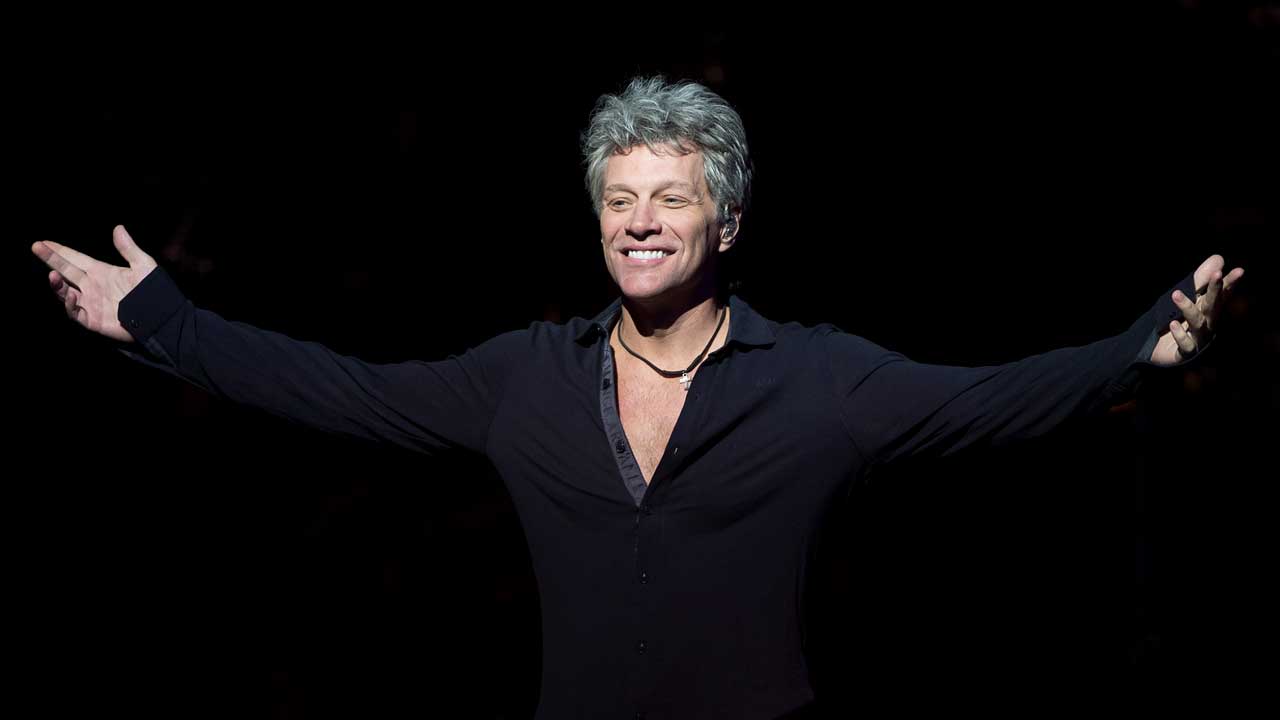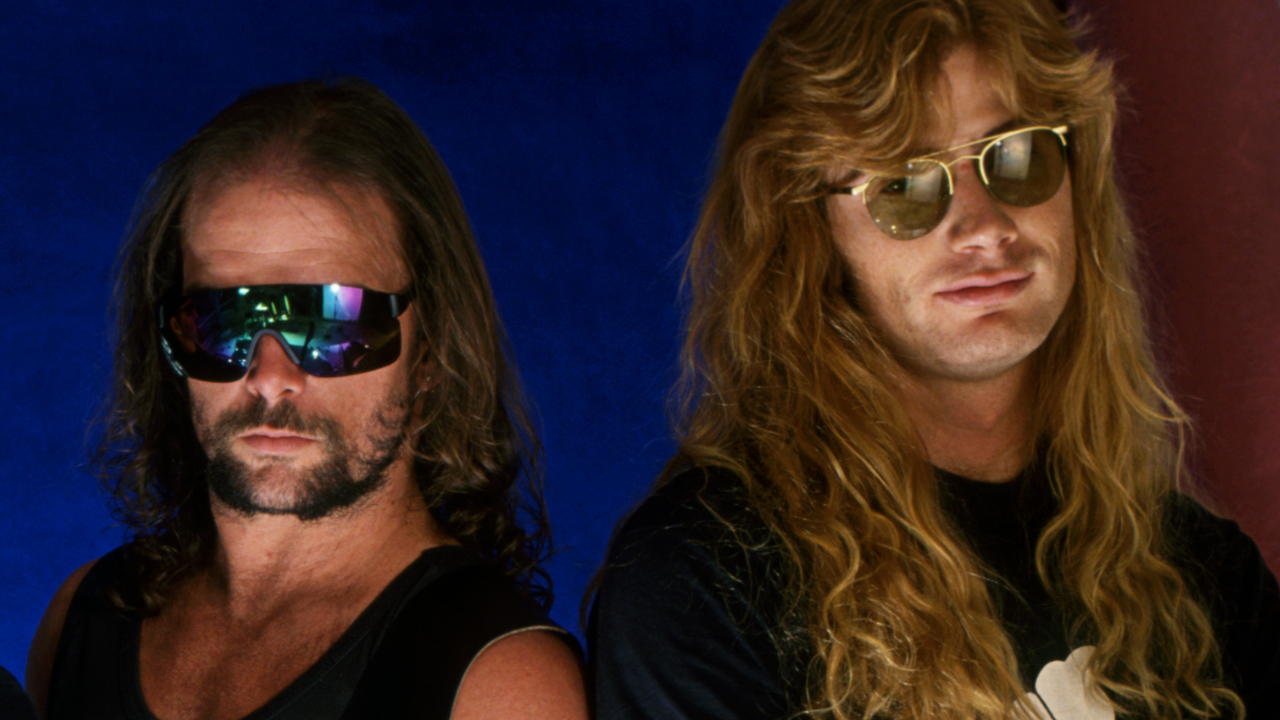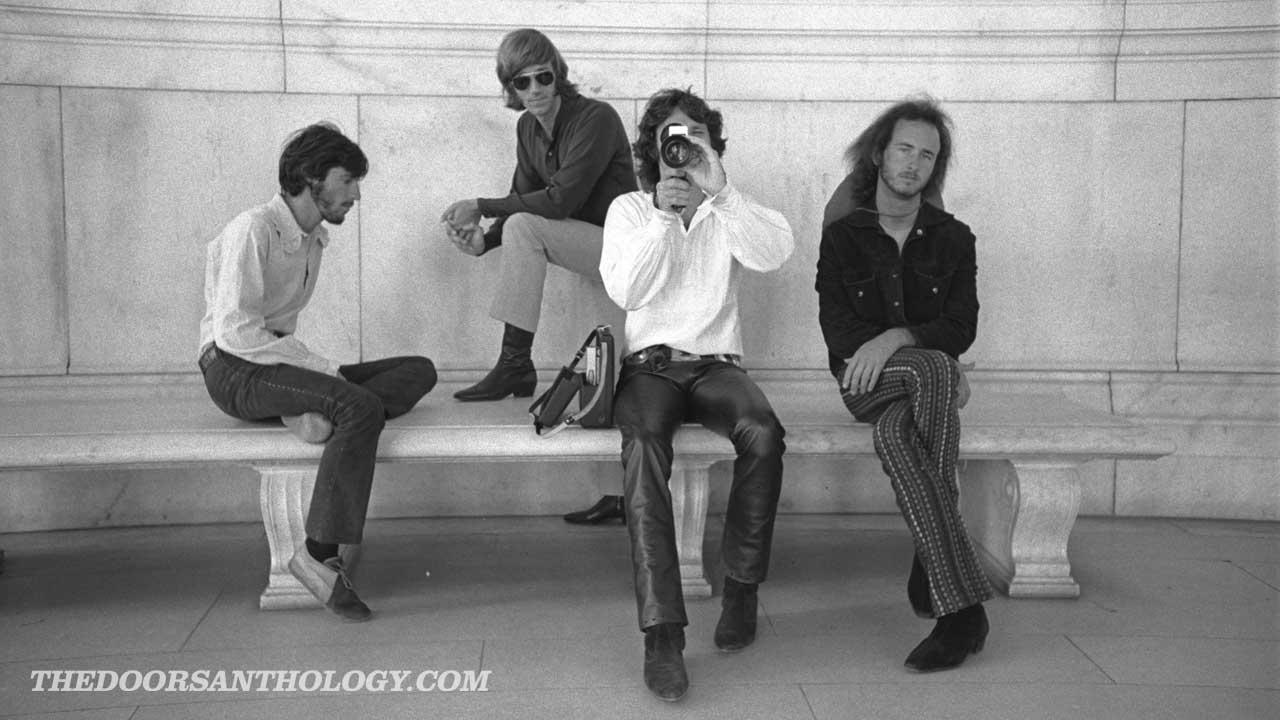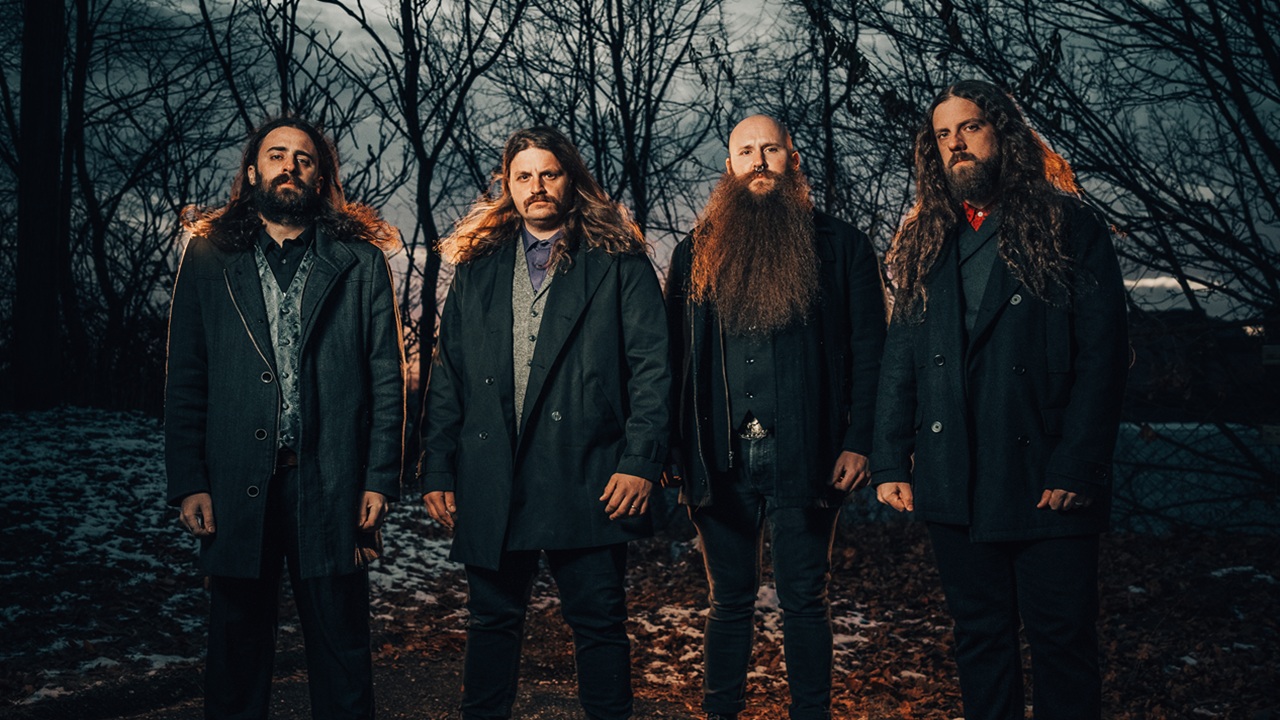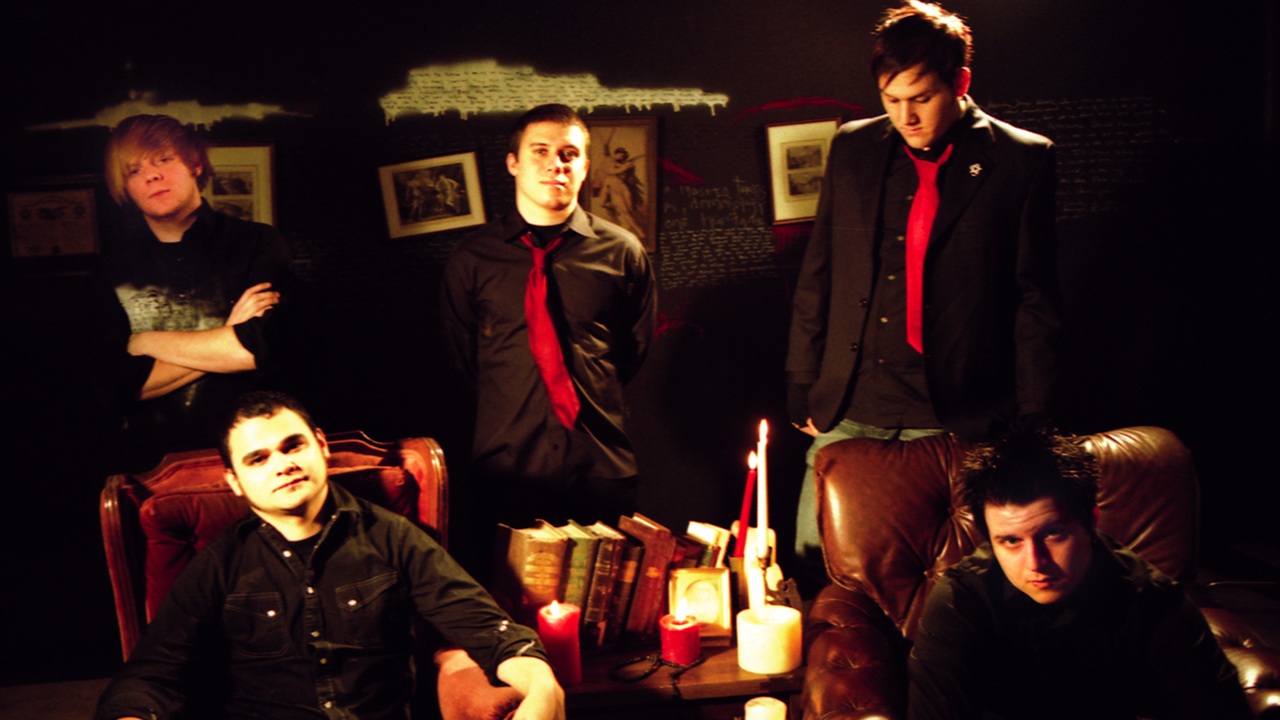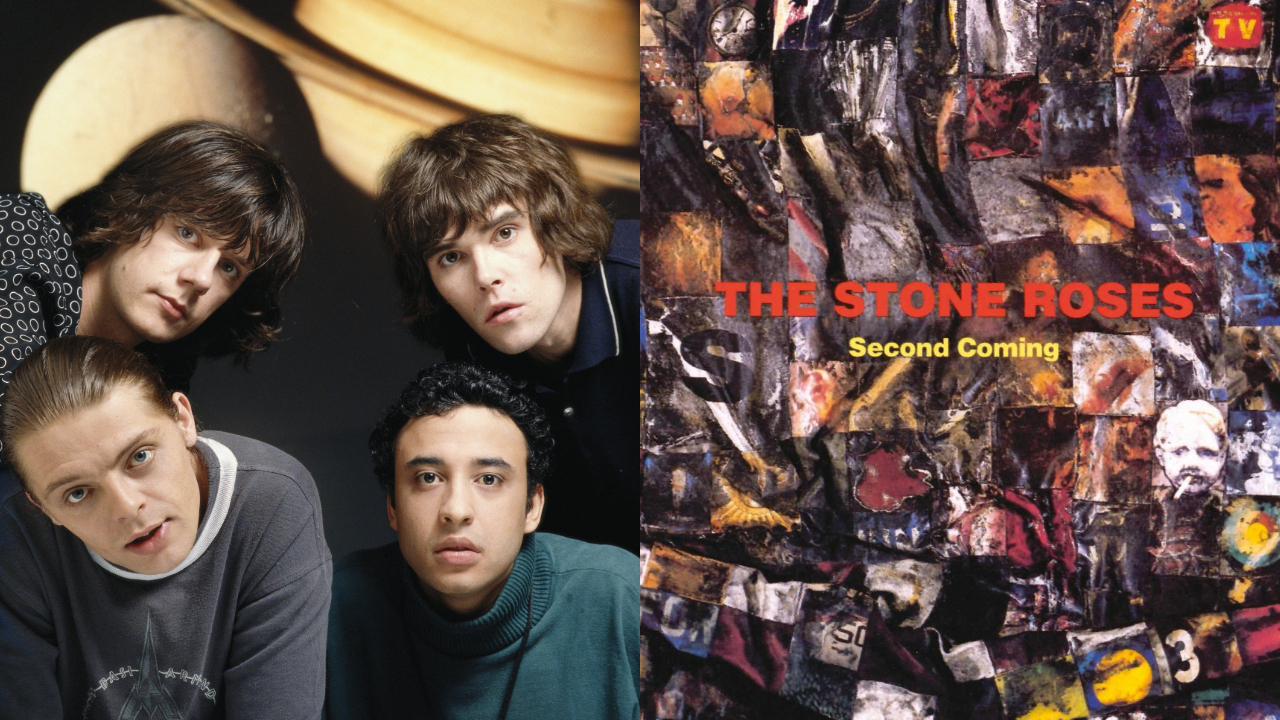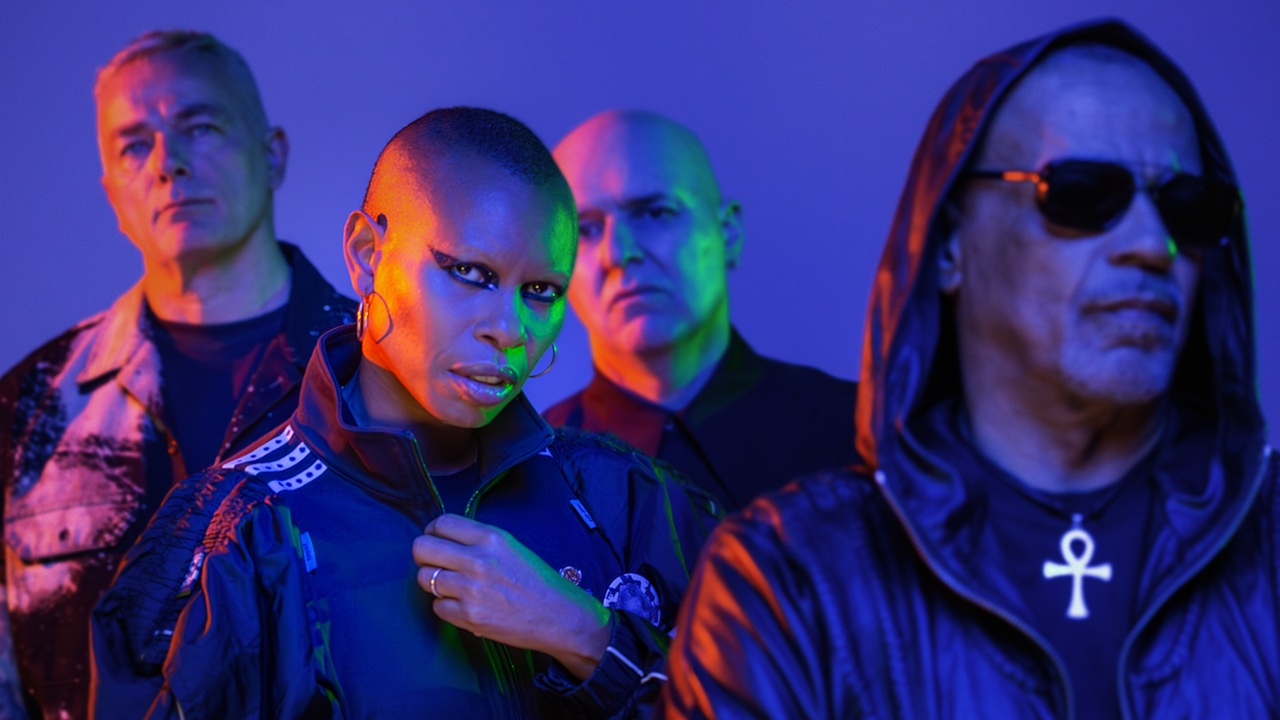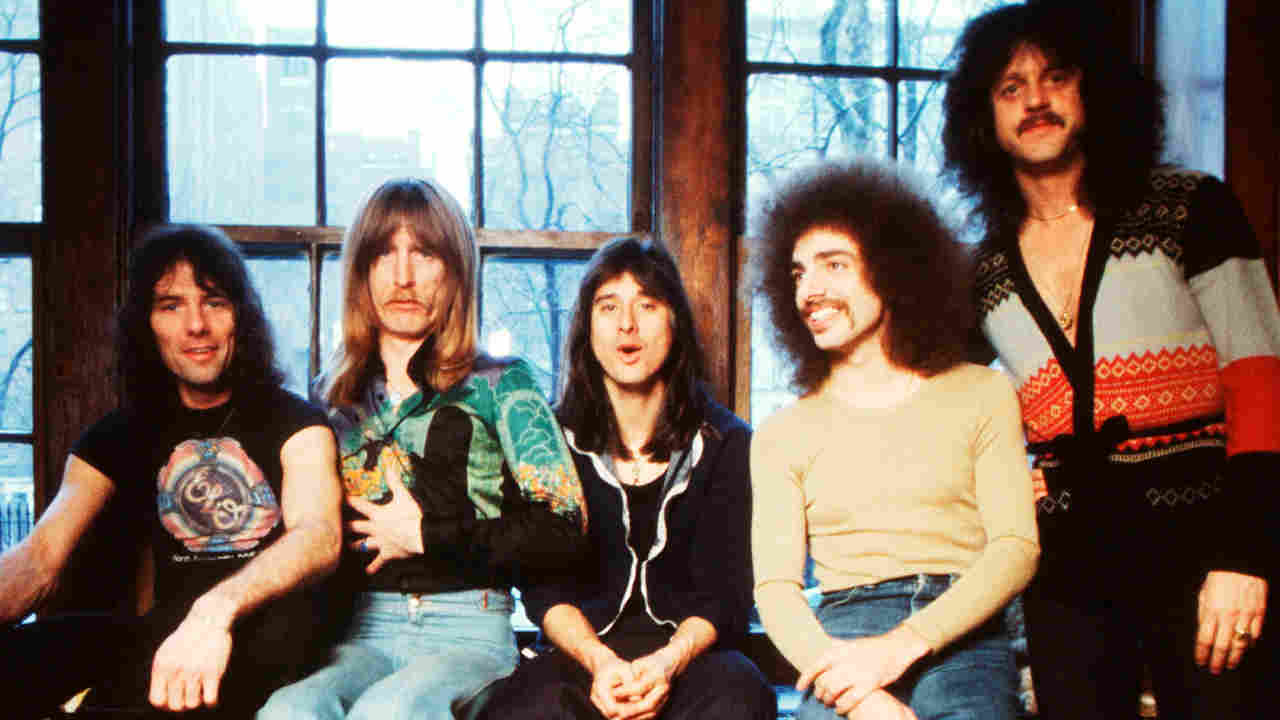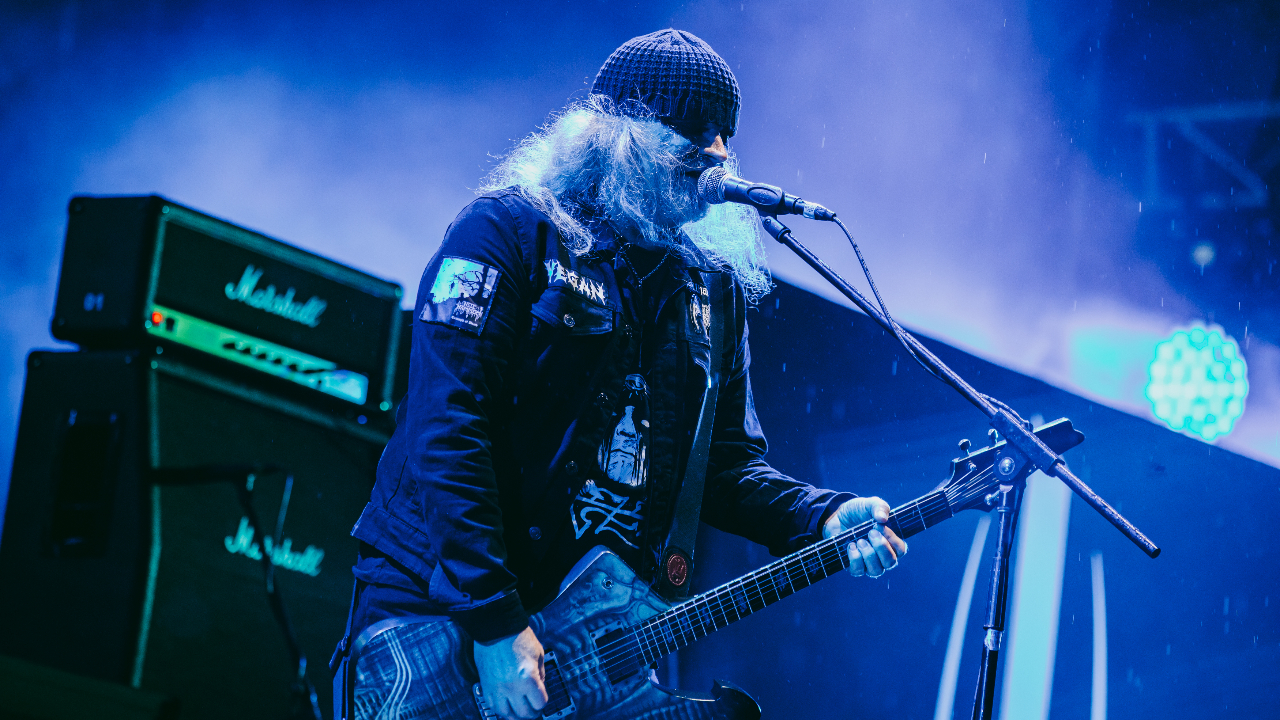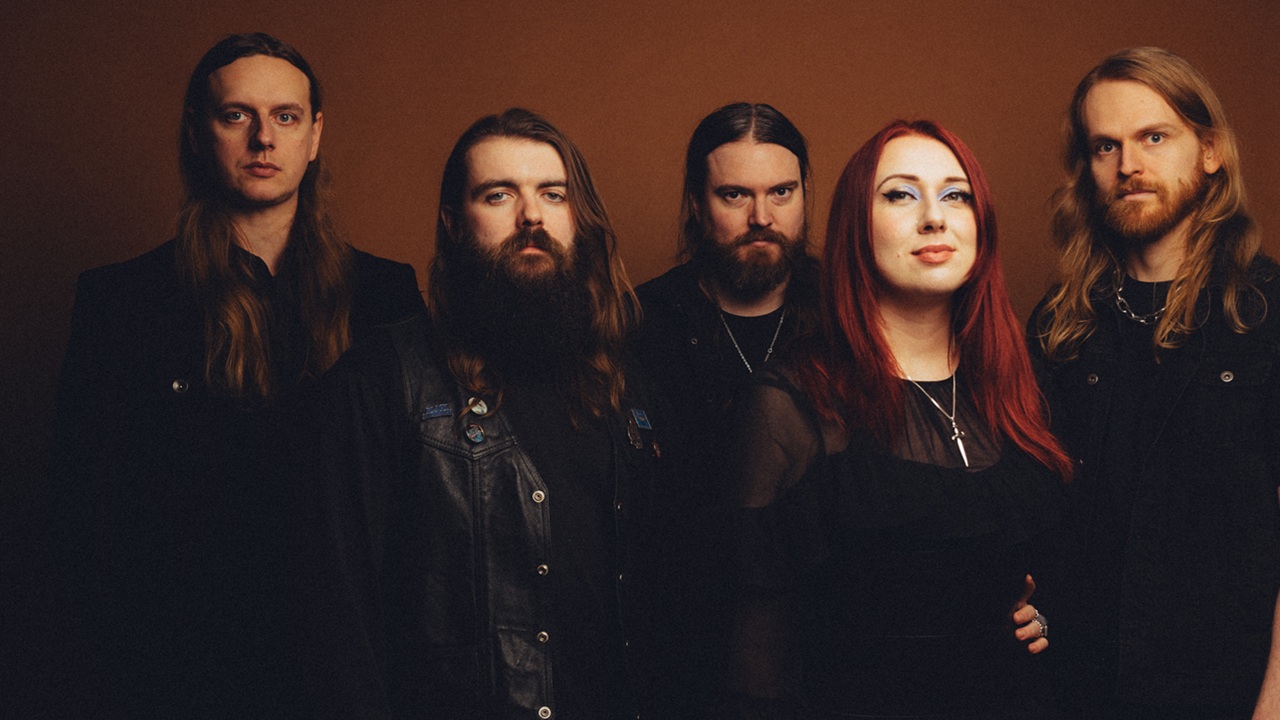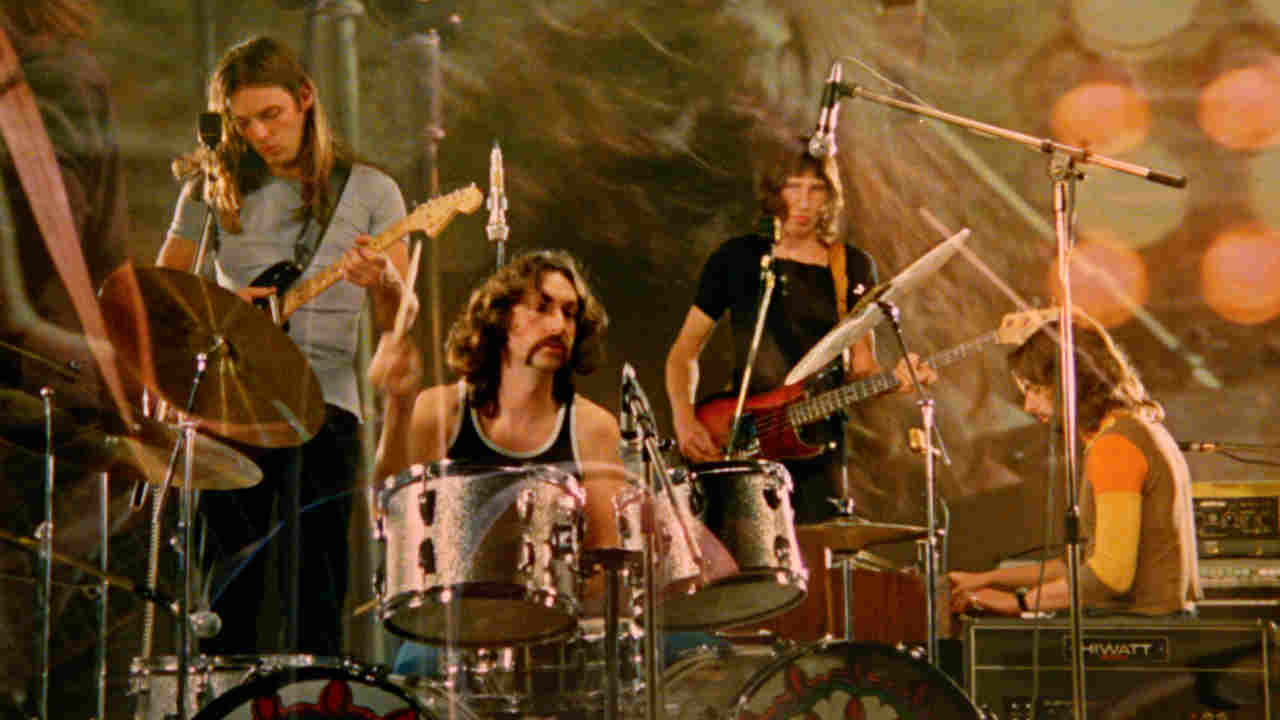It’s May 1985, and Bon Jovi are on stage at London’s Dominion Theatre, halfway through the UK leg of their 7800° Fahrenheit tour. Tickets are £3.50, and the mostly-male audience are confronted by a singer who doesn’t look like other singers. His clothes appear to be accessorised with female underwear. He has chiselled cheekbones, a radiant smile born of uncommonly perfect teeth, precisely tousled hair, and a glittering blue cloak that fans out in an arc from his body as he spins across the stage. To his right is an equally lithe guitarist, leather-clad and bare of chest. They’re clearly on to something. It’s a good show, but it’s a traditional rock crowd, and there’s a degree of suspicion about this duo’s very apparent prettiness.
For an audience who’ve only recently staggered out of the NWOBHM’s patchouli and sweat-scented trenches, Bon Jovi are a confounding prospect. But not everyone’s thrown: dotted throughout the crowd are young women, and they’re going nuts.
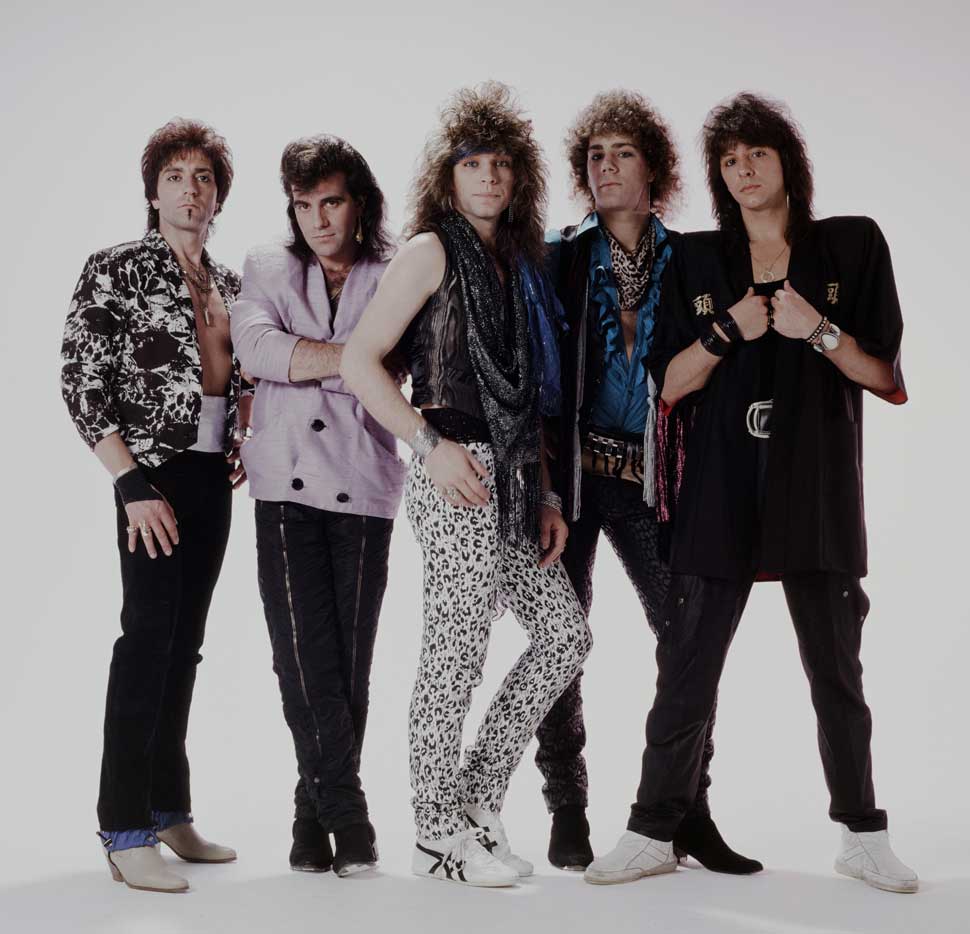
Today, some 31 years later, Bon Jovi are on stage again at a similar London venue. That guitarist is gone, those women dominate the audience, and Classic Rock is sitting next to one. Angela is a charity worker from Preston who fell in love with the band as a seven-year-old on a family trip to New Jersey.
“I remember the bandana, and all the hair,” says Angela. “It was a nice look, but it was more about the music. It was so powerful. When you listen to it, your heart surges like it’s about to burst out of your chest. It makes me feel euphoric.”
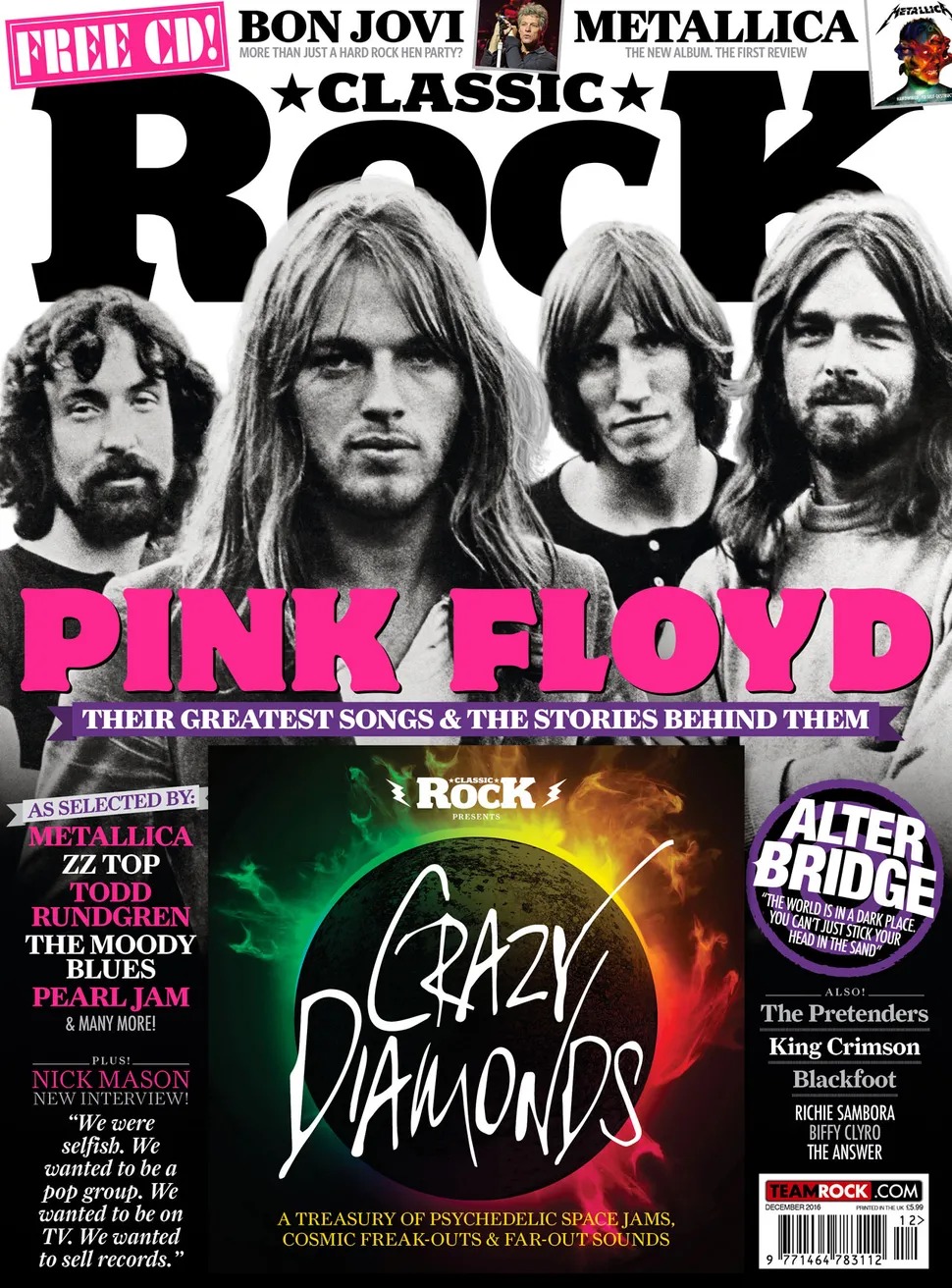
She first saw the band on the These Days tour at Wembley Arena.
“It was everything I hoped it would be,” she says. “It was ten times better. The only thing I can compare it to is when you touch down in New York for the first time and you feel a sensation that anything is possible. That’s how their music makes me feel.
“I also feel that Bon Jovi helps people build bridges. If you ever feel awkward in a situation, or you’re not sure how to connect with people, a good way to start a conversation is to talk about Bon Jovi. It’s helped me get established on a work level, and it’s helped me make friends."
How would she feel if she met Jon?
“I might die,” she jokes. “I’ve thought about this a lot. I’ve even role-played it with a friend.”
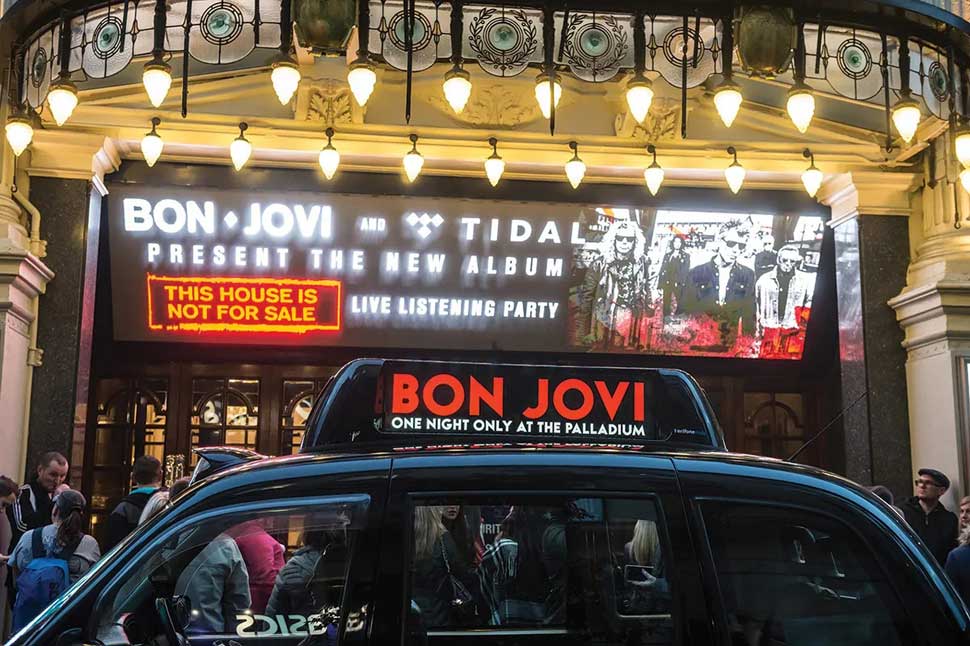
Tonight’s ‘Listening Party’ is Bon Jovi pressing the reboot button. With a new album on the way and a new seven-man line-up, it’s a rare opportunity for us to see the band play a non-arena set, and for them to road test the new songs in front of an unquestioning audience.
As is the way of these things in 2016, it’s a live show that’s sponsored by a streaming service funded by millionaires, one that fans have accessed either via a ticket lottery or by stumping up £1,230 for a package including cocktails, a meet’n’greet, and a signed photo. Things have really moved on since 1985.
“It’s Sunday Night at the London Palladium,” announces Jon Bon Jovi, “and my name’s Bruce Forsyth.”
Dressed in simple black shirt and trousers, he has that slightly feminine look of many men of a certain age who’ve managed to hold on to their looks, hair and figure. Half Bill Clinton, half Ellen DeGeneres, but still ludicrously handsome.
New rhythm guitarist John Shanks (the album’s producer) fires the starter’s pistol with the riff to the album’s title track, This House Is Not For Sale, and we’re off. It’s the one song from the album you know will remain a fixture on future tours, with a riff pulled straight from the Bryan Adams school of popular performance art and a chorus that can stand toe-to-toe with the band’s most exultant Rock Of Ages-style bangers. Three minutes in and we’ve already climbed Everest.
Living With The Ghost follows, and it’s clear that Jon Bon Jovi has lost none of his knack with a tune, nor his gift for pumping them full of helium to ensure they fly. These are songs built for swaying crowds in vast arenas, with guitars that ring and chime, and choruses that soar deliriously towards the heavens. They might not be Coldplay or U2, but they definitely share much of the same DNA.
Something else JBJ shares with Bono and Chris Martin is sincerity, and there’s a lot of it on show. Jon talks about each of the songs at length, going into the whos and the whys and the wherefores, seemingly happy to let the energy in the room sag just as soon as each song has built it up.
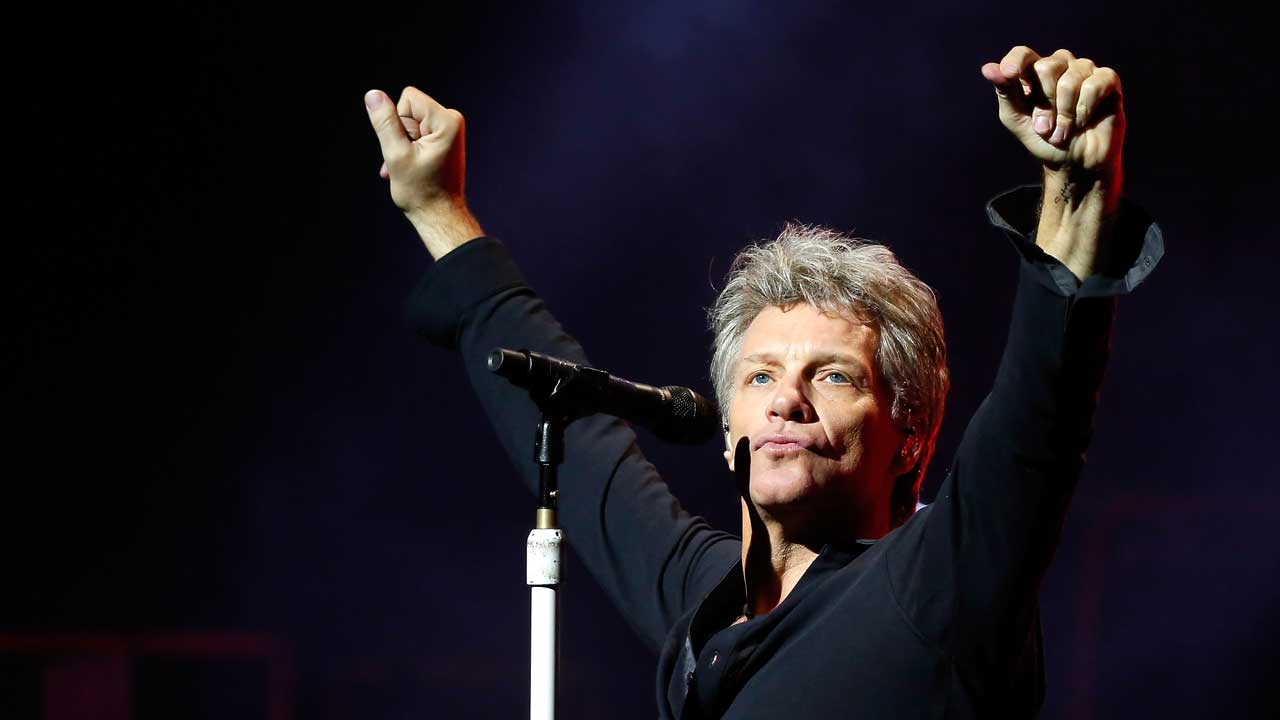
“The thing about these songs,” he ponders, “is when we write them, they come from the purest of places. They come from a place inside you, and sometimes you don’t know how, but they come. And when they come, they mean something specific until the day we share them. And that’s when everything turns, and these songs, over the years, have become yours. Tommy and Gina became you, and your friends.” And he sounds less a rock star, more a man who’s spent a substantial amount of time sitting on expensive therapy couches and isn’t entirely sure if he got his money’s worth.
He talks about his frustration with social media, and his battles with the record company, and his struggles with songwriting, and about the type of man he is, and he really only sounds happy when he’s talking about listening to Led Zeppelin is his bedroom as a kid. The rest of the time he gives the impression that being Jon Bon Jovi really isn’t that much fun. Occasionally he flashes that brilliant Colgate smile, and you wish it would linger a little, but his eyes narrow and the smile vanishes and you begin to wonder about the type of man he is.
It’s entirely possible that Classic Rock is alone in this analysis. The crowd scream every time Bon Jovi opens up his shoulders and leans back, arms spread, his legs bent at the knees, despite this being the apparent extent of his stagecraft. His voice isn’t what it once was, but it doesn’t seem to matter. When the band play Rollercoaster, everyone claps along to a song they don’t know without any encouragement at all.
This crowd are having a ball. They remain on their feet throughout the songs, although by the time Devils In The Temple (a snarling rocker about Bon Jovi’s fractured relationship with Mercury Records) rolls around, many are taking the opportunity to sit through the speeches. In the row in front of us, two women who’ve clearly been hitting the chardonnay alternate between swaying from side to side, their arms elatedly held aloft, and sagging in their seats, chatting loudly and texting people who are elsewhere.
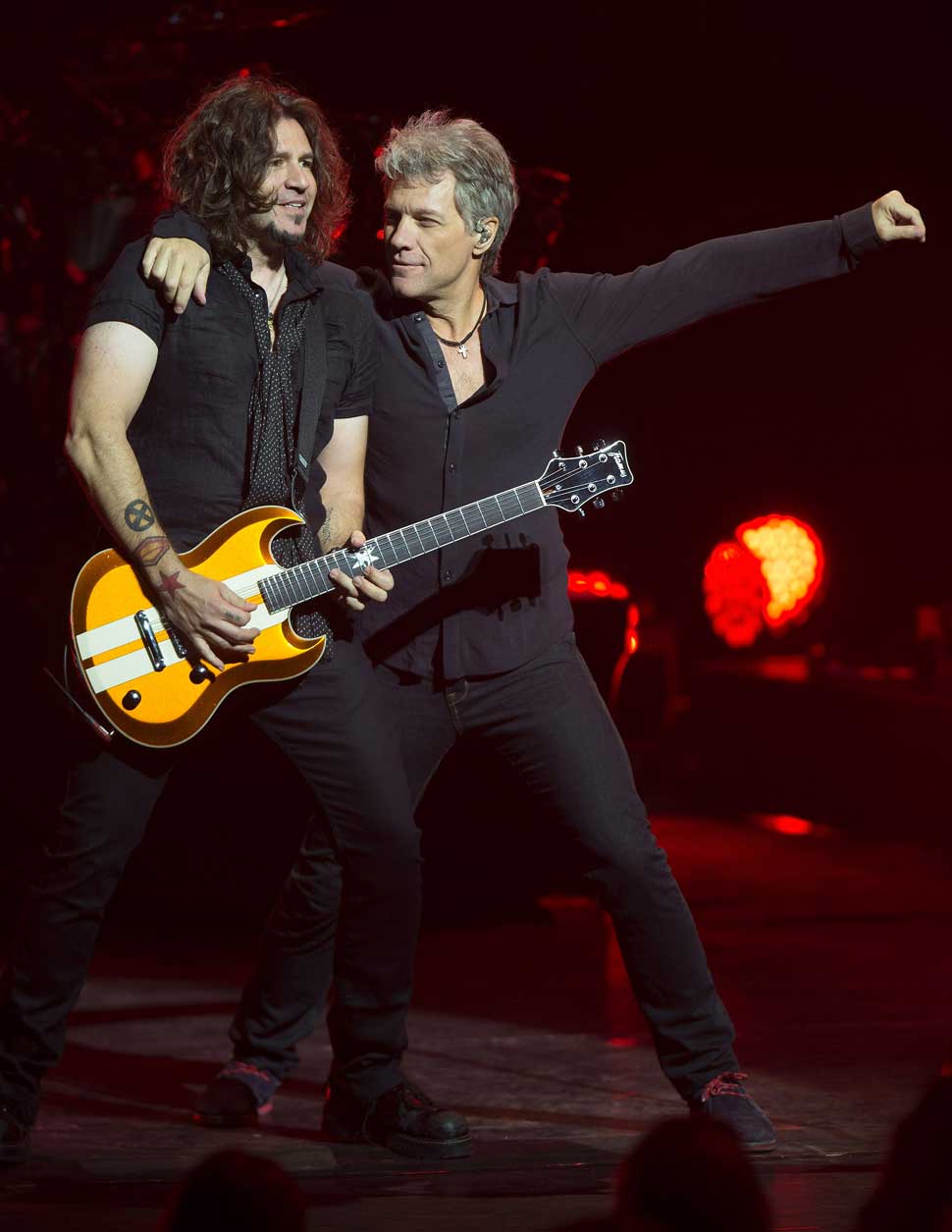
Phil X is a solid replacement for Richie Sambora, but something doesn’t look quite right. Before Richie left, there was a partnership at the core of the band, with all its attendant chemistry and chaos. Now it feels like a one-man show, with the other musicians reduced to the role of supporting cast. As Bon Jovi and Phil X lean into each other like Jon and Richie used to, it feels like choreography.
Musically speaking, there are differences too. Sambora’s playing was so rooted in the blues that the band always had a sweet, soulful edge, and this has been filed down and replaced by something that feels more functional, as if their sound were designed by strategists. Nonetheless, Sambora is a ghostly presence throughout. So much of what Jon Bon Jovi talks about is rooted in the break-up, and about the tumult that followed, even if the band’s former gunslinger is never referred to directly.
Angela, who liked Sambora because “you need someone in a band who’s a little bit of a liability, a little bit rock’n’roll”, is positive about Phil X. “I think he’s different, but he was really engaging onstage, probably because he was so clearly excited to be there, and so enthusiastic. He brought a lot of light and presence to the stage.”
Scars On This Guitar is a real highlight of tonight’s show, a ballad that slowly unwinds over softly strummed chords and some lovely, Stonesy piano from David Bryan. Meanwhile, God Bless This Mess is cut from similar cloth to This House Is Not For Sale, with a rousing chorus and lyrics that mark the singer’s passage through time (‘My voice is gone, I’m going grey, my muscles all ache’).
Elsewhere it’s slim pickings. Reunion features the kind of churning, repeated guitar patterns so beloved of U2, while New Year’s Day (no, not a cover) sounds like someone’s had their copy of The Unforgettable Fire on repeat and decided it could be improved by adding tinsel. It’s as if the band fall back on the same kind of tricks other stadium acts use when the songs aren’t as good as they might once have been: the bagpipe-style guitars; the bombast; the grand statement choruses designed to make large, impersonal events feel personal and intimate.
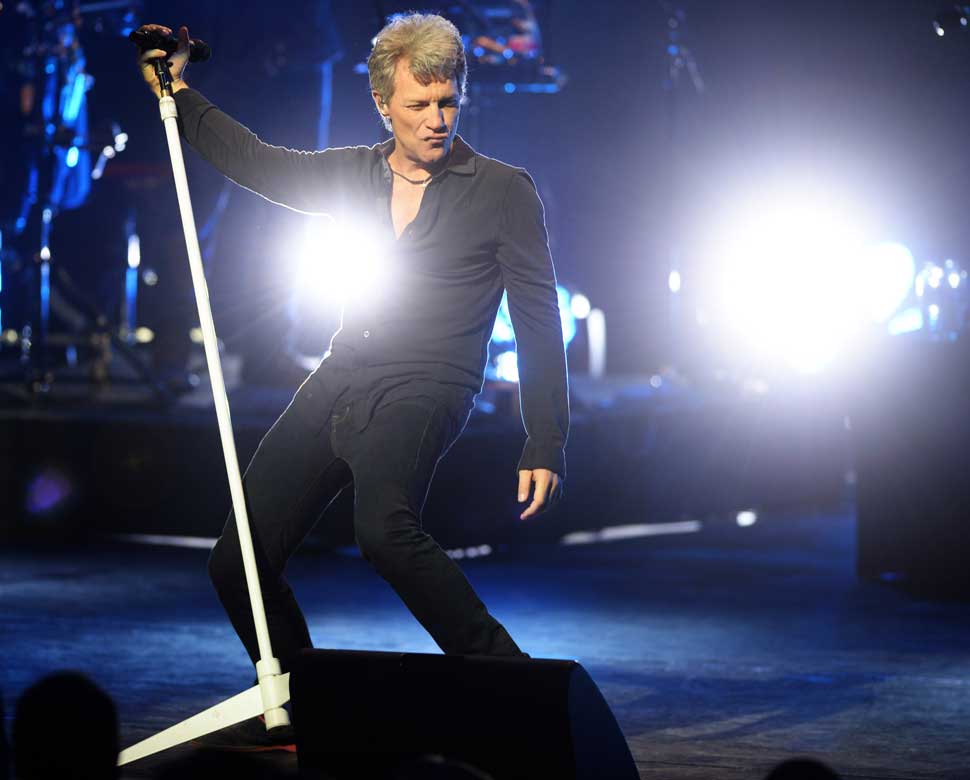
There are moments of light. Phil X plays some bum notes on the intro of Come On Up To Our House that are so jarring that a halt is called to proceedings, before he grins sheepishly and holds up his hand in apology, nowhere to hide. And Jon Bon Jovi talks about his charity work with such unbridled enthusiasm that it’s a stark contrast with the bitterness you sense bubbling under the surface when he speaks about the band. He chokes up singing All Hail The King (another song that has to be stopped and started again), and it’s impossible to tell if it’s genuine emotion or part of the act.
It’s clear that Jon Bon Jovi is proud of these new songs, and it’s clear that this audience have signed up for the duration. And while a triumphant final coupling of Have A Nice Day’s Who Says You Can’t Go Home and a rafter-rattling Bad Medicine suggests it’s the big hits that’ll keep the crowds coming back for more, there’s enough in the new material to suggest that the band are going to keep things interesting.
“If you will, pull up a chair,” says Jon Bon Jovi, “and let me tell you stories for the next 30 years.”
Afterwards we make our way to the Palladium Bar. Lips and Rob from Anvil are there, along with the cheesemaker Alex James and X Factor winner Matt Cardle. There are free drinks, and pretty girls in neat uniforms stalk the room offering canapés. One by one, the members of Bon Jovi slip quietly into the throng, where they’re warmly greeted by old friends and colleagues.
And one by one, Angela waits to gets her photo taken with them. Hugh McDonald asks her name as they compare glasses. Phil X seems delighted to see her and offers a hug. Tico Torres is gracious. David Bryan listens as Angela explains how he inspired her to take up piano.
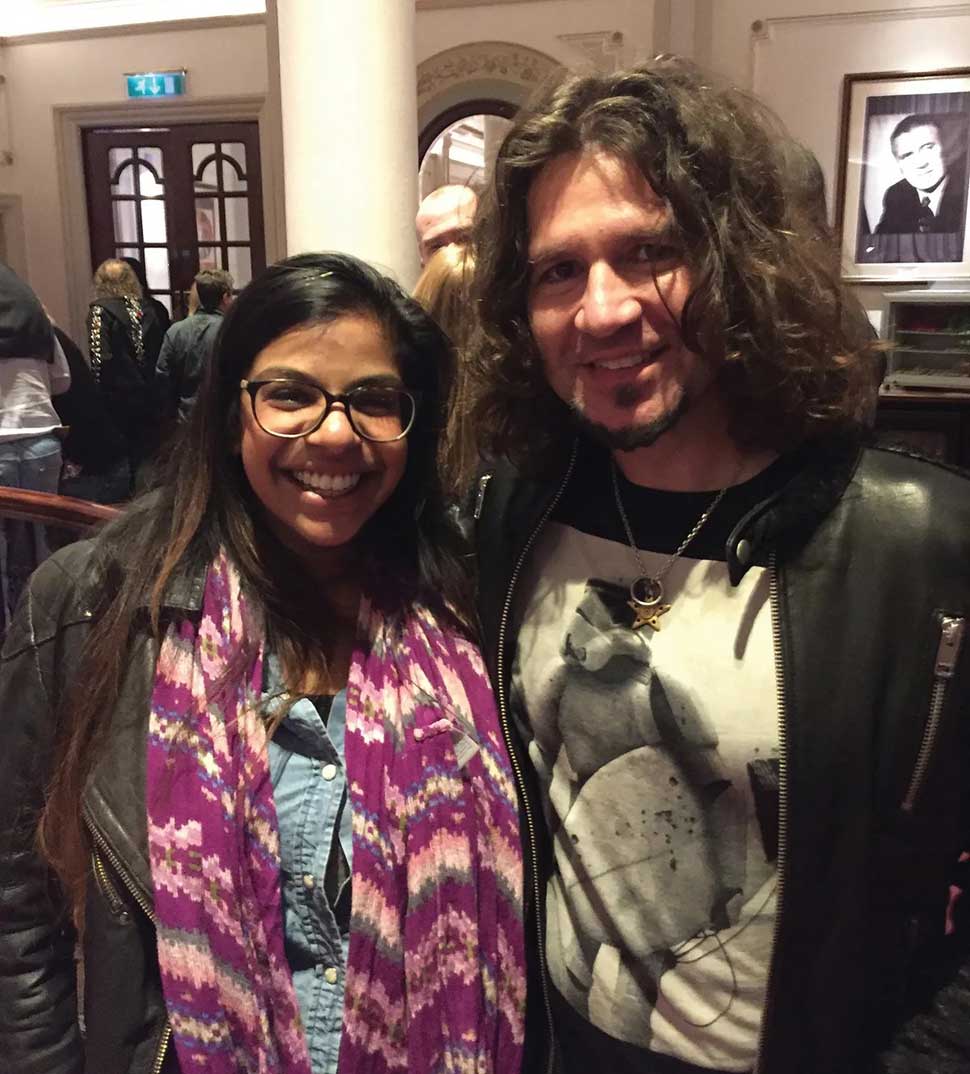
We linger for a while, drinking wine and eating cold chicken, but there’s no sign of Jon. Then someone who used to work with the band tells us the frontman was probably halfway back to the hotel before the last notes of applause had faded. This isn’t the kind of thing he does. And Angela’s not going to get the photo she really wants.
“You know, even though I didn’t meet Jon Bon Jovi, I’m cool with it,” she says. “I had an amazing night and I am glad my Jon Bon Journey isn’t over. It just means we’re destined to meet at some other point, when I’m not two red wines in and going celeb-spotty-dotty at the after-party. After all, he said he’ll be around for another thirty years… which will make me sixty-four and Jon ninety-four. Perfect!”
Fan’s-eye view: Angela’s full review of Bon Jovi at the Palladium
A soft roar erupts through the London Palladium. Tico Torres settles down at the drums. David Bryan takes to the keyboards. Hugh McDonald stands firm on the bass. A flash of neon rips through the venue and thunderous applause reverberates around the room… Then he appears: Jon Bon Jovi, a vision in skinny jeans, silky black shirt unbuttoned just enough to reveal a tantalising slither of waxed pectorals.
The audience goes crazy as the opening chords of This House Is Not For Sale power through the venue, creating an immense heart-soaring rush of exuberance. This is Bon Jovi, back to their finest, for one night only.
With a playlist dedicated to the band’s new album, the first five songs currently released are met with excitement. For Jon, it’s an opportunity to talk – often at length – through the album, and the “tumultuous time” of late. The band nearly lost its record deal, he reveals, and Richie sadly departed.
It’s a fascinating insight into a normally guarded (albeit super-sexy) man. His honesty is refreshing and it’s clear that the stage is where Jon relaxes. The often chatty interludes make me itch for a classic track or to relive the JBJ/Richie Sambora glory days. While Jon alludes to his former bandmate and BFF, it’s never directly addressed.
The music is when it’s best. This House Is Not for Sale is poignant and power-packed (the four walls represent the four original members of the band), Rollercoaster is a brilliant upbeat number, All Hail The King an opportunity for Jon to talk about his philanthropic ventures (he’s sensitive too – swoon!).
Finally, it’s time for the encore. It’s what we’ve all be waiting for. The band burst back on. Jon punches the air, does that alluring wiggly finger thing as he leans back with this knees bent (man, he’s got some moves) and launches into Who Says You Can’t Go Home.
The familiar chords of Bad Medicine kick in and I’m in my happy place. Cue that overpowering, heart-soaring rush of exuberance that no band other than Bon Jovi can quite make me feel.
This feature originally appeared in Classic Rock 230, published in December 2016
